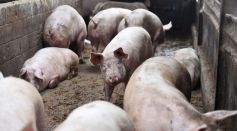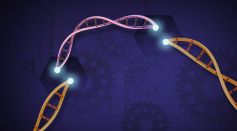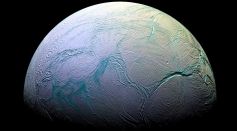Tags: Microbes

How Do Bacteria Move Inside Our Bodies? Study Reveals How Microbes Make a Beeline to Squeeze Through Tight Spaces

Humans and Animals Share Diseases: What’s the Implication to Both Species?

Breakthrough Study Reveals How Meningitis Spreads Through Fungal Infection, Block and Damage Blood Vessels

Genome Editing for Microbiomes Available Soon Through New CRISPR Development
Does NASA Really Need to Deep Clean Mars Spacecrafts? Scientists Say 'No!'
Superbugs Overcome Drugs Normally Used Against Them; May Help in Developing Evolutionary Medicine to Prevent Antibiotic Resistance
Microorganisms Hidden in Passion Fruit Seeds Found Beneficial Rather Than Harmful; New Study Reveals Bacteria’s Help in Germination, Growth, and Defense

Volcanoes Provide Earth's Atmosphere First Oxygen 100 Million Years Earlier Than Great Oxidation Event
Methane-Cycling Microbes Fossilized 3.42 Billion Years Ago Offer New Insight on Early Life

Methane Plumes on Enceladus: Could the Saturn Moon Host Life?

Mars Methane Detections: Are Scientists Ready to Explain These Occurrences on the Red Planet?
Microbes of Deep-Sea Community Can Survive Extreme Heat, Influence Carbon Cycling

Oceanic Microbes Consume Methane 50 Times Faster, Regulating Earth's Temperature
New Bacterium Nearly Absent in Obese, Diabetic People But Found in Healthy Individuals
Genetically Re-engineered Microorganisms to Convert Waste Into High-Value Chemicals

Bacteria in Sinks Result from Handwashing, Research Shows
Study Seeks to Track Changes in Microbial Diversity, Indicates Difficulties

Microbes on Earth Could Temporarily Live on Martian Surface, New Research Shows
Could Acidic Volcanoes Have Teemed with Early Life? Study Says They Might Have
Scientists Turned Microbes From Yellowstone's Hot Springs Into Vegan Burgers
Most Popular

Orionids Meteor Shower Happening Next Week: Where and When To Catch the October Light Show's Peak

Texas Official Shot Down Siren Flood Alert, Complaining That It Might Go Off 'In the Middle of the Night': Report

Nvidia's Jetson Thor Could Make Humanoids Smarter Than Ever

Hellfire Missile Video Reveals MQ-9 Reapers Being Used for Aerial Combat





